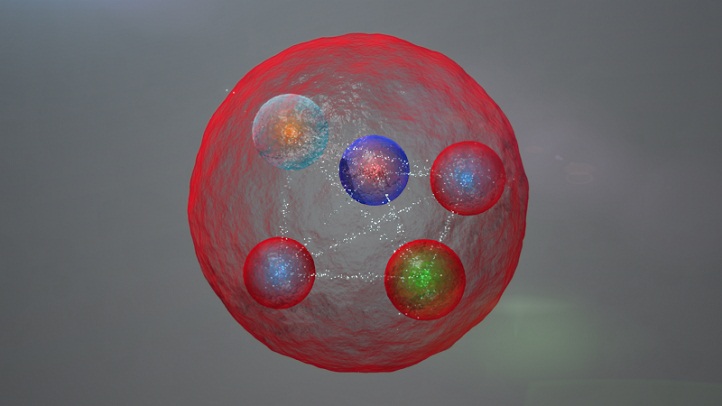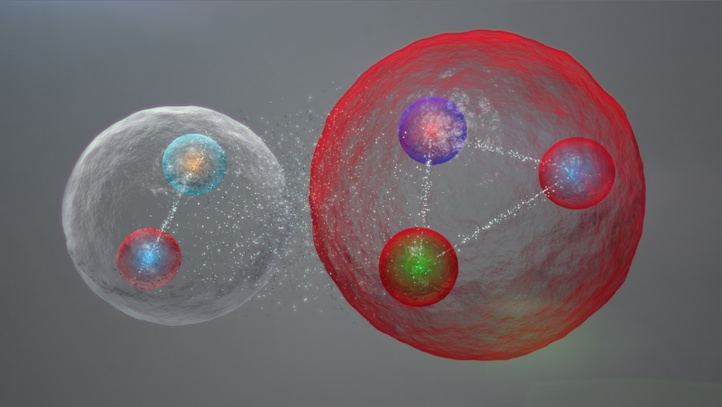What Are Exoplanets And How NASA Detects Life Beyond Our Solar System
Bharti Airtel Set To Acquire Telenor India Within This Year
Google Celebrates NASA’s Discovery Of Seven Earth-Like Planets With An Animated Doodle
Some Home Remedies That Might Sound Bizarre But Actually Work Like A Charm
Akshay Kumar Feels He Has Made Enough Money, Now Wants To Focus On Content & Characters
Delhi ATM Dispenses Fake Rs 2000 Notes From ‘Childrens Bank of India’ With ‘Churan Lable’
Adolf Hitler’s Personal Telephone During World War II Is Up For Auction In The US
From Salman Khan To Rekha, Neil Nitin Mukesh’s Wedding Reception Was Quite A Starry Affair
Meet Pentaquark, The Newest Particle Discovered By Scientists At CERN
In a landmark achievement, Scientists at the CERN's (European Organization for Nuclear Research) Large Hadron Collider (LHC) in Switzerland have announced the discovery of a new kind of particle — the 'pentaquark'. This is the second significant discovery in three years after the Higgs Boson discovery in 2012. The existence of the pentaquark had been theoretically known since the 1960s, but scientists were not able to prove it until its detection by the LHCb experiment at the LHC, the world's most powerful particle smasher.
The bunch of new tests conducted at CERN have twice the energy levels they had during the last three-year experiment phase, when the existence of the Higgs Boson was confirmed.
“The pentaquark is not just any new particle,†said LHCb spokesperson Guy Wilkinson. “It represents a way to aggregate quarks, namely the fundamental constituents of ordinary protons and neutrons, in a pattern that has never been observed before in over fifty years of experimental searches. Studying its properties may allow us to understand better how ordinary matter, the protons and neutrons from which we’re all made, is constituted.â€
According to the physicists, this discovery could shed light on how everyday matter is constituted, and help in understanding of the strong nuclear force which is one of the four basic forces in nature, along with gravity, electromagnetic force, and the weak nuclear force.
“Benefitting from the large data set provided by the LHC, and the excellent precision of our detector, we have examined all possibilities for these signals, and conclude that they can only be explained by pentaquark statesâ€, says LHCb physicist Tomasz Skwarnicki of Syracuse University.
"More precisely the states must be formed of two up quarks, one down quark, one charm quark and one anti-charm quark.â€
The pentaquark particle. Source: CERN
Total reposrt here






